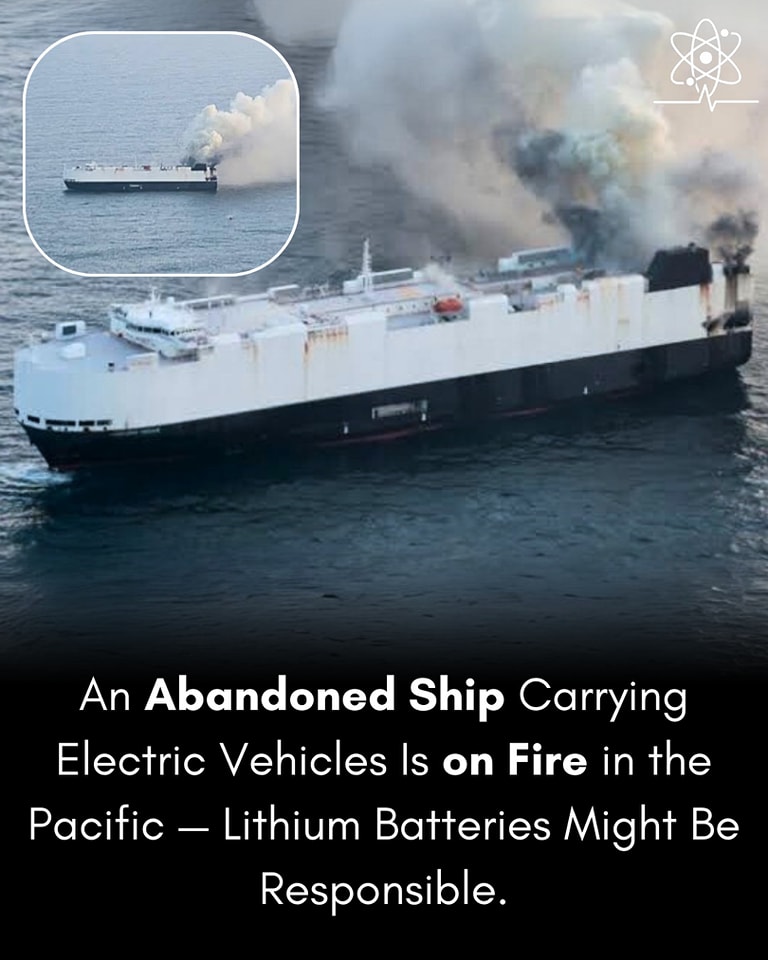On June 3, 2025, the cargo ship Morning Midas, loaded with over 3,000 vehicles—including 70 electric and 681 hybrid cars—caught fire in the North Pacific, about 300 miles south of Alaska’s Adak Island.
The fire likely began on the deck containing EVs and quickly escalated, prompting the entire 22-member crew to abandon the ship.
They were safely rescued by another merchant vessel and the U.S. Coast Guard.
Despite the activation of the ship's CO₂ fire suppression system, the fire reignited, highlighting the notorious difficulty in extinguishing lithium-ion battery fires.
These fires are known for thermal runaway, where one battery’s ignition can trigger a chain reaction.
The vessel remains adrift and burning, with environmental and salvage concerns rising.
This incident marks the third major EV-related cargo ship fire in recent years, following the Felicity Ace (2022) and Fremantle Highway (2023).
The fire likely began on the deck containing EVs and quickly escalated, prompting the entire 22-member crew to abandon the ship.
They were safely rescued by another merchant vessel and the U.S. Coast Guard.
Despite the activation of the ship's CO₂ fire suppression system, the fire reignited, highlighting the notorious difficulty in extinguishing lithium-ion battery fires.
These fires are known for thermal runaway, where one battery’s ignition can trigger a chain reaction.
The vessel remains adrift and burning, with environmental and salvage concerns rising.
This incident marks the third major EV-related cargo ship fire in recent years, following the Felicity Ace (2022) and Fremantle Highway (2023).
On June 3, 2025, the cargo ship Morning Midas, loaded with over 3,000 vehicles—including 70 electric and 681 hybrid cars—caught fire in the North Pacific, about 300 miles south of Alaska’s Adak Island.
The fire likely began on the deck containing EVs and quickly escalated, prompting the entire 22-member crew to abandon the ship.
They were safely rescued by another merchant vessel and the U.S. Coast Guard.
Despite the activation of the ship's CO₂ fire suppression system, the fire reignited, highlighting the notorious difficulty in extinguishing lithium-ion battery fires.
These fires are known for thermal runaway, where one battery’s ignition can trigger a chain reaction.
The vessel remains adrift and burning, with environmental and salvage concerns rising.
This incident marks the third major EV-related cargo ship fire in recent years, following the Felicity Ace (2022) and Fremantle Highway (2023).
0 Yorumlar
·0 hisse senetleri
·24K Views
·0 önizleme


